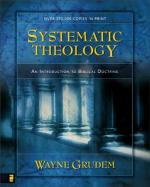|
This section contains 9,047 words (approx. 31 pages at 300 words per page) |

|
SOURCE: Beauregard, David N. “‘Inspirèd Merit’: Shakespeare's Theology of Grace in All's Well that Ends Well.” Renascence 51, no. 4 (summer 1999): 219-39.
In the essay below, Beauregard asserts that Roman Catholic teachings regarding sin, repentance, and salvation are central to the plot and characterization of All's Well that Ends Well. The first half of the play is concerned with the concepts of miracle and merit and the second with pilgrimage and prayer, the critic contends, and together the two parts delineate the Catholic doctrines of grace, merit, and free will.
Ever since the publication of Roland M. Frye's Shakespeare and Christian Doctrine (1963), interest in the role of theology in Shakespearean drama has suffered an unfortunate decline. Frye made the influential claim that Shakespeare held the mirror “up to nature, and not to saving grace” (267), arguing that Shakespearean drama was autonomous and confined to the temporal sphere “independent of theological...
|
This section contains 9,047 words (approx. 31 pages at 300 words per page) |

|


